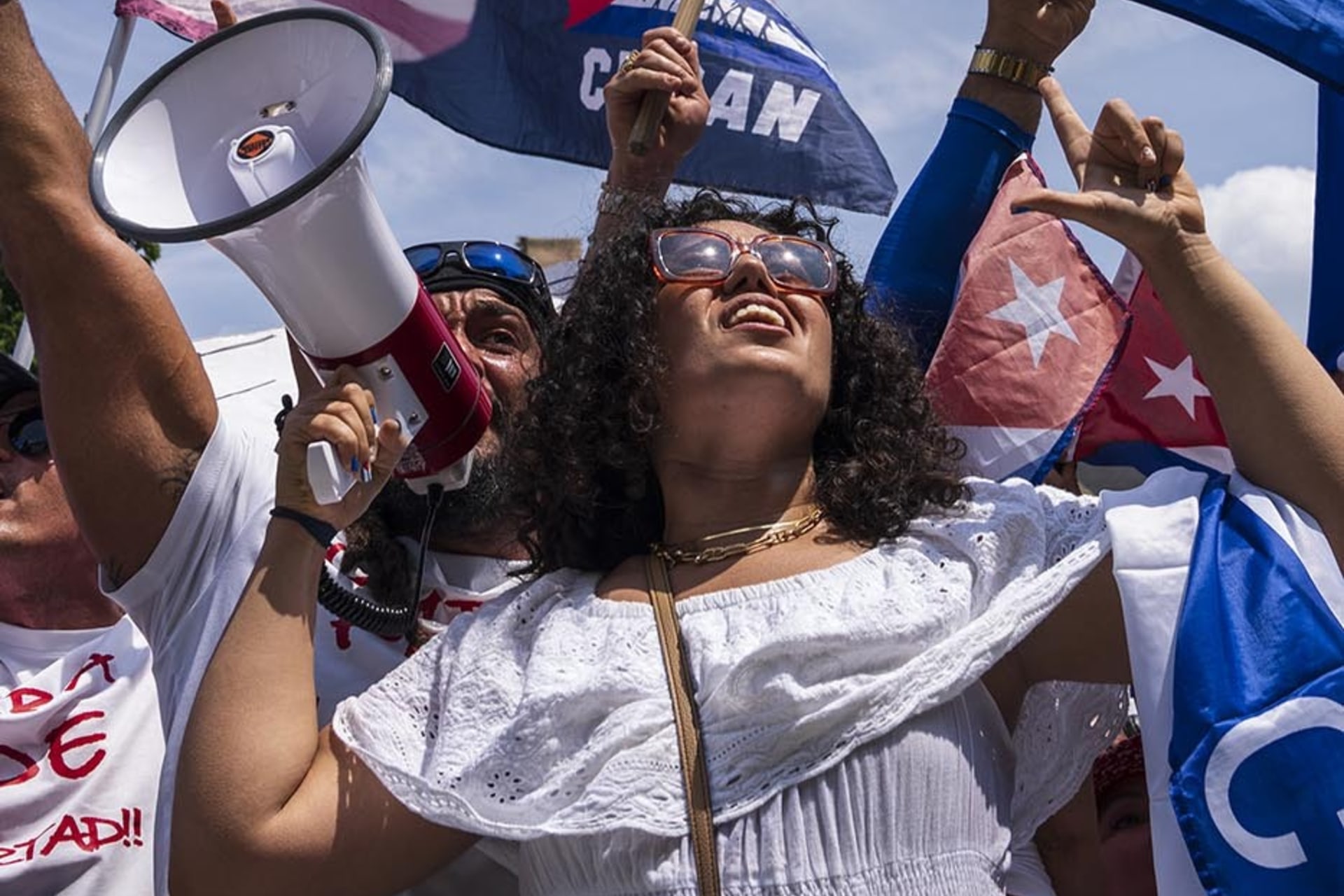BANGLADESH: Nationwide Attacks Raise Fears of Growing Islamist Presence
Published
This publication is now archived.
The August 17 Attacks
On August 17, a series of 459 bombs exploded throughout Bangladesh within forty minutes, killing two people and injuring more than 120. The blasts hit sixty-three of the nation’s sixty-four districts, targeting government buildings and train stations and sending waves of alarm across south Asia. The bombs, which were about the size of salt shakers, “were calibrated to create a sense of terror, rather than the loss of lives,” says Ahmad Tariq Karim, former Bangladeshi ambassador to the United States and senior adviser at the University of Maryland’s IRIS Center. Although no one has formally claimed responsibility for the attacks, leaflets left at many of the sites promoted the Islamic extremist group Jamaat-ul-Mujahadeen Bangladesh (JMB), which officials believe was behind the attacks. In its August 22 web posting, JMB called for Islamic rule in Bangladesh. “We only want to see the rule of Allah,” the posting said, and warned of direct action should the Bangladeshi government “try to repress the clerics and intellectuals of Islam.”
Bangladeshi officials were shocked by JMB’s ability to pull off such a well-organized attack; after all, a state minister denied the group’s existence as recently as January 26. Officials have made at least 150 arrests in connection with the attacks, including the August 22 arrest of Moulana Fariduddin Masud, a prominent Bangladeshi cleric whom authorities suspect of funding the bombings. Sheikh Abdur Rahman, the leader of JMB and suspected mastermind of the operation, remains at large.
The motive for the attacks may have been “to demonstrate that [the JMB] has the organizational skills” to threaten the government, says Gowher Rizvi, director of Harvard’s Ash Institute for Democratic Governance and Innovation. Other possible motives include a desire to heighten already bitter tensions between the ruling Bangladesh National Party (BNP) and the Awami League, the main opposition party. Further escalation may “prove to the Bangladeshis the [main political] parties cannot govern and the Islamists are the only viable force,” says William Milam, senior policy scholar at the Woodrow Wilson Center and former U.S. ambassador to Bangladesh.
Criticism of the Government
Awami League leader Sheikh Hasina Wajed has accused the BNP of complicity in the bombings. “Jamaat [e-Islami, a conservative party within the BNP coalition,] has been supervising activities of various terrorist groups in the country for a long time,” Wajed told reporters August 18. Several Indian newspapers have echoed this sentiment. “That a conspiracy of such magnitude could escape the notice of intelligence agencies defies belief,” wrote Editor Ajai Sahni August 22 in the South Asia Intelligence Review.
Critics have lambasted the government’s ineffectiveness against extremism and are concerned the arrests will have little impact on Bangladesh’s militant groups. The government has routinely released suspects accused of political violence after detaining them, and crackdowns on militants have been halfhearted. Experts say this is the work of government officials who sympathize with the radical Islamists. In April 2004, following the largest arms seizure in the nation’s history, the government raided camps run by Harkat-ul-Jihad Islami Bangladesh (HuJI), a militant Islamist group—but only in response to pressure from the United States and the European Union. Shortly after JMB and its twin organization, Jagrata Muslim Janata Bangladesh (JMJB), were outlawed February 23—also in response to international appeals—Bangla Bhai, the JMJB leader, was allowed to escape across the Indian border. “The government has been complacent. It needs to get its act together” or risk being overrun by fringe groups of radicals, Karim says.
The latest bombings are not the only recent terrorist attacks in Bangladesh. On May 21, 2004, a bomb at the Hazrat Shahjalal Shrine—where moderate Muslims go to pray—killed several people and injured Anwar Choudhury, the British High Commissioner to Bangladesh. Three months later, a grenade attack at an Awami League rally claimed twenty lives and narrowly missed Sheikh Hasina. In January 2005, another grenade attack killed Shah A.M.S. Kibria, a former Bangladeshi finance minister, and four others at an Awami rally. All of these attacks were likely carried out by radical Islamists, possibly to bolster sympathetic elements within the BNP and intimidate the generally moderate Awami League, experts say.
The Rise of Militant Islam
Bangladesh, the world’s third-most populous Muslim nation, has experienced a significant rise in militant Islam in recent years. The traditionally secular government and widespread practice of moderate Islam makesBangladesha “front-line state in the battle for the hearts and minds of the Islamic world,” Karim says. Though ostensibly secular, the BNP is a coalition that includes Islami Oikya Jote (IOJ) and Jamaat-e-Islami, radically conservative parties with reportedly close ties to JMB. As a result, Rizvi says, such militant groups “have the tacit support of the government.” This uneasy bond is causing a rift within the BNP, Karim says, because the government has come under pressure to crack down on [Islamist] groups. One possible aim of the nation-wide bombings could be to exploit these tensions.
Some of Bangladesh’s other fundamentalist groups include JMJB, which has used violent intimidation to gain influence in western Bangladesh. Bangla Bhai claims to have waged jihad in Afghanistan and plans to bring about the “Talibanization” of Bangladesh, the New York Times Magazine reported in January. HuJI, which is reportedly tied to al-Qaeda, has used similar intimidation tactics to gain influence across southern Bangladesh. At a protest against the 2001 invasion of Afghanistan, IOJ supporters chanted, “We will be the Taliban, and Bangladesh will be Afghanistan.”
Most experts say such an extremist takeover of Bangladesh’s government is unlikely. “Extremism is not part of Bangladeshi cuture,” Milam says. Rizvi agrees. “Anything can happen, but of all the Islamic states, Bangladesh is the least fundamentalist,” he says.t
Colophon
Staff Writers
- Eben Kaplan





